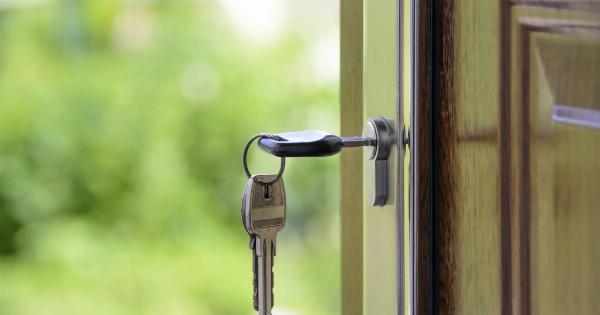Urinary incontinence is a medical condition where a person’s ability to control their bladder is compromised, leading to involuntary leakage of urine.
Incontinence is a condition that is affected both men and women, with statistics indicating that up to 25% of adult men experience symptoms of incontinence at some point in their lives.
In this article, we will explore the causes of urine incontinence in men, as well as some tips on how to manage the condition.
The Causes of Urine Incontinence in Men
Urinary incontinence in men can be caused by a variety of underlying conditions, including:.
1. Enlarged Prostate Gland
The prostate gland is a small, walnut-shaped gland located below the bladder and surrounding the urethra (the tube that carries urine out of the body).
As men age, the prostate gland can become enlarged, a condition known as Benign Prostatic Hyperplasia (BPH), which compresses the urethra and causes urine to leak out involuntarily.
2. Prostate Cancer or Prostate Surgery
Prostate cancer is a common cancer in men, and treatments such as radiation or surgery can damage the nerves and muscles that control the bladder resulting in incontinence.
3. Weak Pelvic Muscles
The pelvic floor muscles play a critical role in bladder control. When these muscles become weak or damaged, they cannot support the bladder and urethra, causing urine leakage.
4. Neurological Disorders
The bladder is controlled by the nervous system, so any damage or injury to nerves can lead to urinary incontinence.
Conditions such as Parkinson’s disease, multiple sclerosis or nerve damage from spinal cord injuries are known to cause urinary incontinence.
5. Urinary Tract Infections
A Urinary Tract Infection (UTI) can cause bladder irritation and inflammation leading to temporary incontinence.
6. Medications
Some medications, such as diuretics, sedatives, and muscle relaxants can cause temporary incontinence in men.
7. Aging
As men age, the muscles and tissues that control bladder function can weaken, making them more prone to urinary incontinence.
8. Obesity
Studies indicate that obese men are more likely to develop incontinence than men of average weight. The extra weight on the bladder can put pressure on the urinary tract, causing urine leakage.
9. Alcohol and Caffeine
Alcohol and caffeine are diuretics (a substance that increases urine production), which can cause an increase in urine production, leading to urinary incontinence.
10. Smoking
Smoking is known to irritate the bladder, increasing the risk of urinary incontinence.
Managing Urinary Incontinence in Men
While urinary incontinence can be a frustrating and uncomfortable condition, there are several ways to manage incontinence:.
1. Kegel exercises
Kegel exercises involve contracting and releasing the pelvic floor muscles to strengthen them. Regular Kegel exercises can improve bladder control and reduce urinary incontinence in men.
2. Medications
There are several medications that can help improve bladder control, such as antimuscarinics, beta-3 agonists, and alpha-blockers. Talk to your doctor to determine which medication may work best for you.
3. Lifestyle Changes
Lifestyle changes such as maintaining a healthy weight, avoiding alcohol and caffeine, and quitting smoking can help manage incontinence.
4. Surgery
In severe cases where other treatments have failed, surgery may be an option.
Depending on the underlying cause of incontinence, surgeries such as a Transurethral Resection of the Prostate (TURP), Artificial Urinary Sphincter or Urinary Diversion may be recommended.
Conclusion
Urinary incontinence in men can be caused by several underlying conditions such as an enlarged prostate gland, nerve damage, weak pelvic muscles, aging, obesity, and medications.
Treatment options range from lifestyle changes, medication, surgery to devices such as a catheter. If you experience urinary incontinence, it is crucial to talk to your doctor to determine the underlying cause and the best treatment options.



























